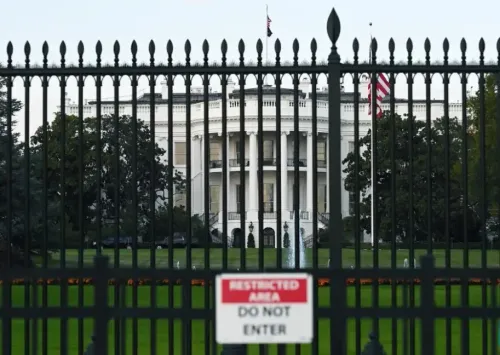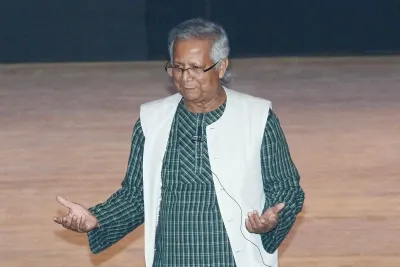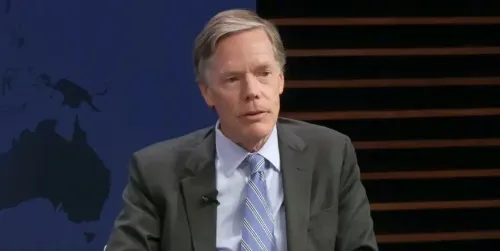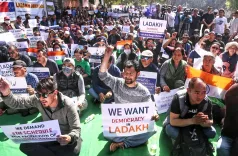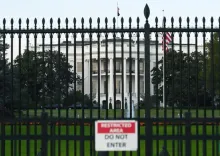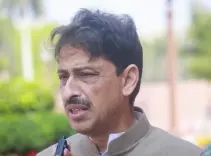Is India Engaging with the Albanese Government over Anti-Immigrant Protests in Australia?

Synopsis
Key Takeaways
- India is in active dialogue with Australia regarding protests.
- Concerns from the Indian community have been formally communicated to the Australian government.
- Australia's multicultural identity is supported by leaders from various political backgrounds.
- The protests have sparked clashes and raised questions about immigration policies.
- Maintaining open communication is essential for the welfare of the diaspora.
New Delhi, Sep 5 (NationPress) India is actively engaging with the Australian government and various diaspora groups regarding the recent anti-immigrant protests that have occurred in the nation, as stated by the Ministry of External Affairs (MEA) on Friday.
During a media briefing, MEA spokesperson Randhir Jaiswal revealed that the Indian High Commission in Australia had communicated concerns expressed by members of the Indian community to the Australian government prior to the protests. The High Commission received a formal acknowledgment from Australia, recognizing that the protests raised issues for various communities within the country.
When questioned about the anti-immigrant protests specifically targeting Indians, Jaiswal remarked, "It is well-known that anti-immigrant demonstrations occurred in multiple cities across Australia on August 31. Our High Commissioner and Consulate Generals in Australia have maintained consistent communication with both the Australian Government and our community members regarding these events. The Indian diaspora in Australia is substantial, numbering nearly a million. Prior to the protests, our High Commission conveyed the concerns shared by the Indian community to the Australian authorities. In response, we received a formal acknowledgment from Australia, indicating that the protests may be concerning for the country's diverse communities."
Jaiswal further noted, "We have observed that senior leaders and politicians from both the ruling Australian government and the opposition have issued statements supporting Australia's multicultural identity. They have recognized the significant contributions made by the Indian Australian community to the overall progress and development of Australia and express gratitude for this role. We firmly believe that diversity is a source of strength. We value our Comprehensive Strategic Partnership with Australia, where our people-to-people connections are a vital component that enhances our strategic relations. The Government of India is dedicated to ensuring the welfare and well-being of all Indians abroad, and we are in contact with the Australian Government and diaspora organizations regarding ongoing developments."
Protests began on August 31, with thousands participating in rallies across capital cities and regional centers, waving Australian flags and demanding an end to what they refer to as "mass migration" into Australia. The events were organized under the banner 'March for Australia.'
According to reports from SBS News, clashes broke out in Melbourne between participants of the anti-immigration rally, counter-protesters, and police. Both State and Federal governments condemned the rallies, with Federal Communications Minister Anika Wells describing the events as "awful scenes" involving "known racists."
Anti-fascist protesters also took to the streets in Melbourne to counter the rally participants, with one individual seizing the microphone during speeches. The event coincided with weekly pro-Palestinian marches, with protesters denouncing what they deemed a display of racism and criticizing the federal government's stance on refugees, according to the SBS News report.
In Sydney, an estimated 8,000 individuals carrying Australian flags attended the rally, chanting, "Aussie, Aussie, Aussie! Oi, oi, oi!" Many advocated for a reduction in immigration numbers, citing the cost-of-living and housing crises. In Brisbane, thousands marched, expressing their disappointment with Australian Prime Minister Anthony Albanese. Organizers indicated that the event aimed to encourage Australians to, as they put it, "take our country back" from migrant groups.

